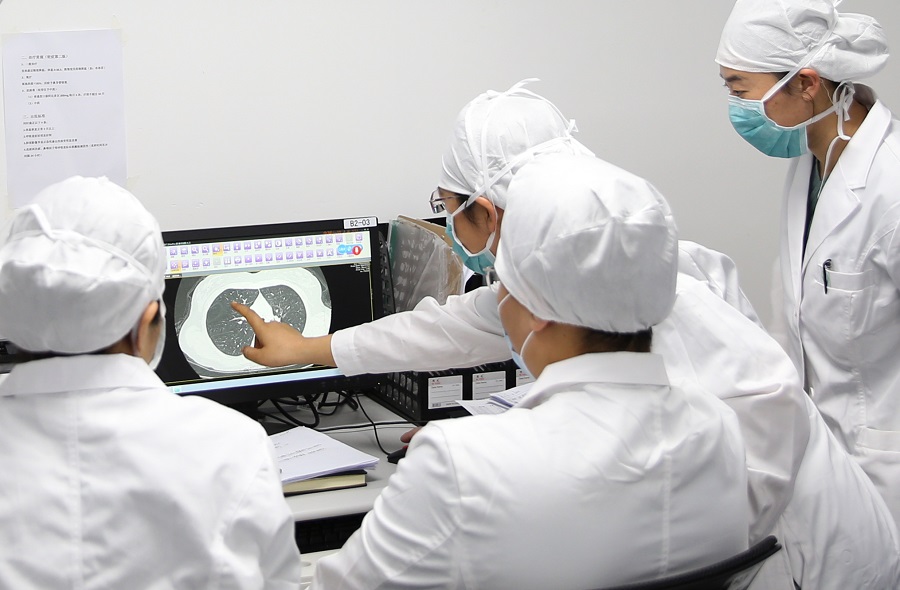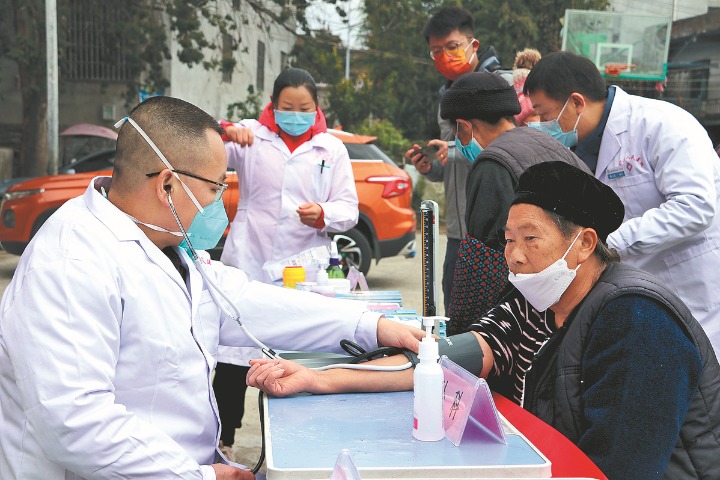Asymptomatic carriers get attention

Chinese scientists will accelerate research into understanding the level of infectiousness of asymptomatic carriers of COVID-19 and recovered patients who have tested positive for the virus, officials said on Friday.
Bao Xianhua, head of commercialization of scientific findings at the Ministry of Science and Technology, said these groups are no cause for panic, but shouldn't be taken lightly, either.
China has not found any cases of recovered patients who tested positive for COVID-19 infecting others, and the majority of experts think asymptomatic carriers will not lead to another outbreak, he said in a news briefing.
Zhang Xiaoyuan, head of the ministry's department of resource allocation and management, said China has invested 320 million yuan ($45 million) in special funds in 68 scientific projects to combat the novel coronavirus.
Asymptomatic carriers and recovered patients who tested positive again in later checkups have become a hot issue in public discourse due to the potential for rekindling another outbreak. On Monday, Premier Li Keqiang urged health officials to closely monitor and track silent carriers and their close contacts.
Two days later, the National Health Commission announced it will begin disclosing the number of asymptomatic infections under medical observation.
Officials on Thursday reported 60 new asymptomatic infections, seven of which were imported. A total of 1,027 asymptomatic patients, including 221 from abroad, are still under medical observation.
Central government data for recovered patients who retested positive was unavailable, though local health authorities and workers reported some 3 percent to 10 percent of patients who recovered could test positive again after being discharged from hospitals, according to state media.
However, virologists have frequently warned not to call these patients reinfected since they have yet to find evidence proving these patients have become infectious.
Moreover, false results could be due to a myriad of reasons, including the quality of testing, how the samples were taken and handled, and the fundamental mechanism of nucleic acid tests, which amplify bits of genetic material so that residual viruses from the initial infection may lead to a false result in the second positive reading.
Zhong Nanshan, China's leading expert in tackling the epidemic, said on Thursday that the nucleic acid tests can detect parts of the viral genome, not necessarily the whole live virus.
"Most recovered patients will produce strong antibodies in their bodies, and most of them will not be reinfected," he said. "The chance for these patients to spread the virus to others is also very low."
Please feel free to contact us by sending your questions to question@chinadaily.com.cn or commenting on China Daily app. We will ask experts to answer them.














